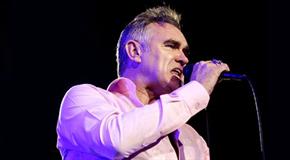Features
Magazine Apologizes To Morrissey
The British singer/songwriter filed the libel lawsuit against former NME editor Conor McNicholas and the magazine’s publisher, IPC Media, based on quotes in a November 2007 interview. Morrissey, who won a pre-trial hearing in October for the case to move forward to the high court in London before a jury, claimed the interview portrayed him as a “racist and blatant hypocrite.”
The interview includes the following quotes:
“The gates of England are flooded. The country’s been thrown away. … With the issue of immigration, it’s very difficult because, although I don’t have anything against people from other countries, the higher the influx into England the more the British identity disappears.”

Now NME has issued a public apology for what the publication calls a “misunderstanding.”
Posted online June 12, with the headline “NME says sorry to Morrissey for the misunderstanding over 2007 article,” the full statement is below:
“In December 2007, we published an article entitled ‘Morrissey: Big mouth strikes again.’
“Following this, Morrissey began proceedings for libel against us. His complaint is that we accused him of being a racist off the back of an interview which he gave to the magazine. He believes the article was edited in such a way that made him seem reactionary.
“We wish to make clear that we do not believe that he is a racist; we didn’t think we were saying he was and we apologise to Morrissey if he or anyone else misunderstood our piece in that way. We never set out to upset Morrissey and we hope we can both get back to doing what we do best.”
The libel case was scheduled to go to trial in July. A spokeswoman for NME said the case is now closed, noting that the settlement didn’t include payment of any damages or legal costs, according to the BBC.